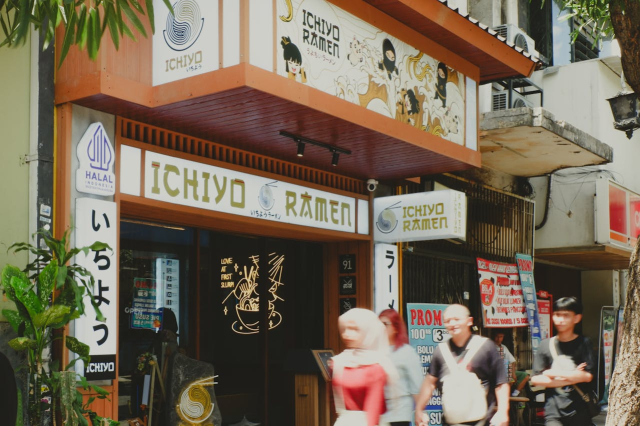Japanese culture is world-renowned for its ancient traditions, gastronomy, and healthy lifestyle that predominates among much of its population. One of the most striking aspects is the ability of the Japanese to stay fit and healthy, without relying on strict diets that are common in other parts of the world. But what is their secret? This article explores the habits, customs, and philosophies that are part of the "Japanese secret" to losing weight without undergoing strict diets.
The philosophy of hara hachi bu
One of the fundamental concepts of Japanese culture is “hara hachi bu,” a philosophy originating in Okinawa that translates as “eat until you are 80% full.” This practice teaches people to listen to their body’s signals and avoid overeating. Studies have shown that reducing caloric intake in a moderate way can help improve overall health and prolong life expectancy.
Hara hachi bu also encourages mindfulness during meals. Rather than eating quickly or while doing another activity, the Japanese tend to enjoy each bite, allowing the brain time to register satiety. Not only does this help with portion control, but it also improves the overall eating experience.
A diet based on whole, natural foods
The traditional Japanese diet is rich in fresh, whole foods and low in saturated fat. Some of the mainstays of this diet include:
- Brown rice : Although white rice is popular, many people in Japan also consume brown rice, which is a source of complex carbohydrates and fiber.
- Fish and shellfish : They are rich in omega-3 fatty acids, which benefit the heart and brain.
- Vegetables and seaweed : The Japanese consume a wide variety of vegetables and seaweed, which are rich in minerals, vitamins and antioxidants.
- Miso soup : This fermented food is a source of probiotics, which promote a healthy intestinal microbiota.
- Green Tea : Known for its antioxidant properties, green tea is a common drink that also helps speed up metabolism.
The combination of these foods not only promotes health, but also helps maintain a healthy weight naturally.
Constant movement in daily life
Another key aspect of the Japanese lifestyle is the constant level of physical activity, naturally integrated into their daily routine. In Japan, walking is a primary form of transportation. Many people walk or use bicycles to get around, allowing them to maintain an active lifestyle without the need for a structured exercise program.
In addition, household chores and daily rituals, such as gardening or even practicing calligraphy, also contribute to caloric expenditure. This focus on constant movement reinforces the idea that staying active does not necessarily mean going to the gym, but rather incorporating physical activity into your daily life.
Portion sizes
In Japan, portions are significantly smaller compared to other countries. The Japanese prefer to serve their meals on small, decorative plates, which not only controls the amount of food consumed, but also makes the meals more visually appealing.
Variety is also key. A traditional Japanese meal may include several small dishes, each with a different type of food. This allows for a wide range of flavours and textures, which contributes to feelings of satiety and prevents the urge to overeat.
The practice of ikigai
Ikigai is a Japanese concept that can be translated as “reason for being” or “life purpose.” Having a clear ikigai not only provides daily motivation, but is also linked to better mental and physical health.
Stress is a known factor that contributes to weight gain, especially in cultures where fast food and high-calorie food consumption are a way of coping with anxiety. The Japanese, by focusing on their ikigai and practicing activities that bring them joy, tend to manage stress better, which indirectly helps maintain a healthy weight.
Eat seasonally and locally
Another characteristic of the Japanese diet is the preference for fresh and seasonal foods. Eating local and seasonal products not only ensures greater freshness and flavour, but also provides the body with the nutrients it needs at every time of year.
For example, in summer, the Japanese enjoy light, refreshing foods like sashimi and somen (cold noodles). In winter, they consume warm soups and stews like oden. This natural approach to seasonal foods is aligned with the body's biological rhythm, which can contribute to better overall health.
The importance of presentation
In Japan, food is not only nutritious, but also aesthetically pleasing. The careful presentation of dishes encourages eating slowly and enjoying the experience. This approach contrasts with fast food culture, where the main goal is to consume quickly.
The Japanese believe that “eating with your eyes” is as important as tasting the food. This act of appreciating the food before eating helps create an emotional connection with the food, promoting mindful eating.
Breathing and posture
A lesser-known element of the Japanese lifestyle is the focus on posture and breathing. Practices such as zazen (sitting meditation) and other forms of meditation encourage good posture and deep breathing. These techniques help reduce stress and improve digestion, both key factors in maintaining a healthy weight.
Conclusion
The Japanese secret to losing weight does not lie in miracle diets or intense workouts, but in a holistic approach to life and food. Habits such as hara hachi bu, the consumption of fresh and seasonal foods, physical activity integrated into the daily routine and mindfulness at mealtimes are practices that anyone can adopt.
While Japanese culture has its own particularities, the principles behind this lifestyle are universal and applicable to any environment. By adopting some of these habits, you will not only be able to lose weight naturally, but also improve your overall health and well-being.
Sources consulted:






